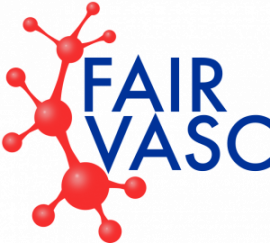Aladdin Mohammad Lund University, Clinical Sciences, Rheumatology, Lund and Dept. of Rheumatology, Skåne University Hospital Lund, Sweden
Alfred Mahr Cantonal Hospital St.Gallen, St. Gallen, Switzerland
Augusto Vaglio Meyer’s Children’s Hospital, Florence, Department of Medicine, Florence, Italy
Benjamin Terrier French Vasculitis Study Group, Cochin Hospital, APHP, University of Paris, Department of Internal Medicine, Paris, France
Dagmar Jäger Clinical Trials Unit, Medical Center- University of Freiburg, Freiburg, Germany
Fabian Schubach Clinical Trials Unit, Medical Center- University of Freiburg, Freiburg, Germany
Gaye Stephens ADAPT Centre for Digital Content, O’Reilly Institute, Trinity College Dublin, Dublin, Ireland
Hicham Kardaoui French Vasculitis Study Group, Cochin Hospital, APHP, University of Paris, Department of Internal Medicine, Paris, France
Jacek Musiał Jagiellonian University Krakow, Department of Medicine Cracow, Poland
Karl Gisslander Lund University, Clinical Sciences, Rheumatology, Lund and Dept. of Rheumatology, Skåne University Hospital Lund, Sweden
Kris McGlinn ADAPT Centre for Digital Content, O’Reilly Institute, Trinity College Dublin, Dublin, Ireland
Krzysztof Wójcik Jagiellonian University Krakow, Department of Medicine Cracow, Poland
Louis Aslett Durham University, Durham, United Kingdom
Lucy Hederman ADAPT Centre for Digital Content, O’Reilly Institute, Trinity College Dublin, Dublin, Ireland
Maria Christofidou The European Institute for Innovation through Health Data (i~HD), London, United Kingdom
Mark Little Trinity College Dublin Trinity Translational Medicine Institute, Trinity Centre for Health Sciences, Dublin, Ireland
Matthew Rutherford University of Glasgow, Institute of Infection, immunity & Inflamation, Glasgow, United Kingdom
Nathan Lea The European Institute for Innovation through Health Data (i~HD), London, United Kingdom
Neil Basu University of Glasgow, Institute of Infection, immunity & Inflamation, Glasgow, United Kingdom
Peter Lamprecht University of Lübeck, Department of Rheumatology, Lübeck, Germany
Sabrina Arnold University of Lübeck, Department of Rheumatology, Lübeck, Germany
Sepideh Hooshafz ADAPT Centre for Digital Content, O’Reilly Institute, Trinity College Dublin, Dublin, Ireland
Vladimir Tesar General University Hospital in Prague, Prague, Czech Republic
Zdenka Hruskova General University Hospital in Prague, Department of Nephrology, Prague, Czech Republic
Grace Davey Pintail Ltd.
The QIT team is formed by FAIRVASC members experienced in query design, researchers and clinicians. It initially drafted the first set of questions to be considered in FAIRVASC:
For exposures:
- What is the patient’s age and gender?
- What is the ANCA auto-antibody subtype?
- What is the ANCA-associated vasculitis (AAV) diagnosis? (one ‘ophacode’ value)
For outcomes:
- Has the patient died?
Subsequent iterations will address the following:
For exposures:
- What is the affected organ pattern?
- What is/was the induction treatment?
- What is/was the maintenance treatment?
- What was the presentation creatinine?
For outcomes:
- If deceased, when did the patient die and what was the cause of death?
- Does the patient have End-Stage Kidney Disease (ESKD)?
- When did ESKD occur?
- Were there serious complications and what where they?
The team has considered query design in the context of how information can be retrieved from the FAIRVASC infrastructure. The FAIRVASC members decided in advance that only a specified number of queries will be available to ensure high standards of data protection. A user interface is being drafted to allow researchers to query the registries and perform their own analyses on returned data. These queries will ultimately run on data supplied by each local registry site and will return irrevocably anonymised, aggregated data on vasculitis patients across Europe.
